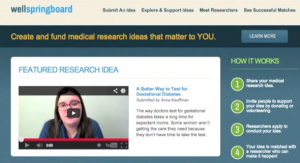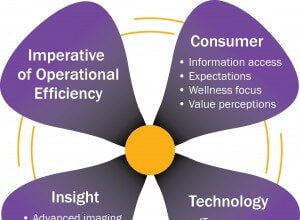Even as medical research unearths new disease indicators, mind-body connections, and life-saving interventions for all manner of ailments, it is also unearthing a striking capacity for culturally-rooted cognitive dissonance.
Even as medical research unearths new disease indicators, mind-body connections, and life-saving interventions for all manner of ailments, it is also unearthing a striking capacity for culturally-rooted cognitive dissonance.
Drilling down into the minutia of the human genome to understand the heritable triggers of Alzheimer’s is a worthwhile pursuit, to be sure. But both the medical community and the public at large knows—and has known for quite some time—that the preponderance of medical complaints can be effectively prevented without expensive, high-stakes interventions, by simple lifestyle adjustments. In particular, a balanced diet and moderate exercise.
The Kitchen Contradiction
The disconnect emerges when attempting to put this knowledge to good use. Dietary advice is common, yet so are drive-through restaurants, convenience foods packaged in foil-lined bags, and ready-meals frozen and microwaved into a mishmash of calories and nutritionally deficient gut-stuffers.
The kinds of technologies that allow us to pinpoint unhealthy behavior and risk factors does much to increase the costs—and consumption—of medical services, but ultimately provides a window to known variables. Prevention is not so complex or scientifically confounding that the average person couldn’t effectively engage in it with success independently. In theory, it is easy to shun convenience foods and opt for balanced diets, to get off the couch and take up a physical hobby.
The cultural context is what impedes the masses from abandoning the drive-thru or taking the stairs. The normalization of objectively damaging behaviors is much harder to untangle than simply pointing out where people are going wrong.
Don’t Beat Yourself Up
Our most vexing problems of health and wellness are not as sophisticated as our endless array of solutions and interventions; but because they are so culturally ingrained, they are more difficult to address head-on.
It is widely understood that full-contact sports come with a significant risk of lifelong health problems. American football has come under particular scrutiny for the way players’ wellness is compromised by supposedly fundamental elements of the game.
Much is made of the rules to change American football: harsher punishments for violations, more stringent enforcement and on-the-field rulings, etc. For all their bluster, these rule changes tend to attract skepticism from player safety advocates as much as fans of the sport who don’t want to see its integrity compromised by kid gloves-style mediation. Off the field, technological solutions abound, from dubious claims of concussion-resistant helmets, to wearable sensor arrays that pinpoint when and where chronic injuries might be occurring.
Indeed, even as the Super Bowl was broadcast, the Will Smith vehicle Concussion was languishing in theaters. Clearly, the intersection of popular culture and best available research data is still not a robust enough union to compel the public to change course on risky behaviors or tolerance of its ubiquity.
Like so many fad diets and so-called “superfoods” promising a Space Age solution to a behavioral problem, society looks to sports medicine research to provide alternatives to changing obviously harmful, cultural norms.
Cultural Opportunity Cost
To borrow a concept from economic theory, these behaviors all have a common root: opportunity cost. That is the (perceived or real) cost of choosing one behavior over another; pursuing golf as opposed to football, or preparing a nutritious meal from scratch rather than microwaving a Hot Pocket. Every pro-health choice comes with a cultural opportunity cost. This leads to known risk behavior being tolerated in the face of overwhelming cultural pressure.
This further supports the mental disconnect linking health outcomes with personal choices. Risk behaviors normalized by a popular culture—fast food, football, etc.—support patient perception that the risks don’t apply to them, or that they adhere to medical advice more closely than they actually do. If, judging by appearances, it is normal and acceptable to engage in these behaviors, then to not do so carries a more visible opportunity cost, than proactive prevention behaviors that reject social norms.
So while it is normal to wait until a problem manifests before going to a doctor seeking a response to that complaint, it is not yet normative to prioritize prevention, engage continuously and proactively with clinicians, or challenge cultural pressures to ignore medical knowledge and advice.
Peer-to-Peer Disruption
Part of the power of the internet came in its capacity to bring the individual to the center of all its operations. From advertisements to social media, users shaped the internet, and its applications reshaped themselves to provide a more ‘custom’ feel. This may be the missing element in healthcare that could connect knowledge to behavior—and carry cultural standards along the way.
President Obama’s “moonshot” deals directly with this principle: the Personalized Medicine Initiative (PMI).
Touted as a possible solution to curing Cancer, much of the attention on this project focuses on advancing research into gene therapy and the creation of massive databanks of genealogical health data. That is one component, but the other is a matter of perception and messaging focused on making patients central to their own treatment—rather than consumers of generalized services and products.
“So often what we label as a healthcare system is actually a disease-care system,” the President explained on February 25th’s live PMI Summit. “Precision medicine is not just about giving practitioners tools to cure people, it is about empowering people…to take a more active role in their own health.”
In terms of bringing genomic data into primary care, personalizing care means directly examining predispositions and imprinted risk factors that shape a patient’s wellness profile. The net effect is not just better treatment, but turning medical knowledge into a part of an intimate, individualized conversation between patients and clinicians. It isn’t just more data or better research, but a different way of approaching what can be measured and understood by new technology and methodologies.
Personalizing the healthcare experience provides a multitude of ways to bring behavior in line with the best available medical knowledge. In some cases, the very phenomenon that enables individuals to exempt themselves from risk pools may be the key to improving adherence: a focus on how a person experiences cognitive dissonance can make the patient more aware of when it happens, and change behavior.
Ultimately, disrupting cultural norms is not just a matter of broadcasting contradictory messages or positing alternatives, but about directly influencing individuals. While ongoing research necessarily informs that conversation, the new paradigm is one of personalizing the message, and empowering patients to be participants, rather than targets, of medical wisdom.








